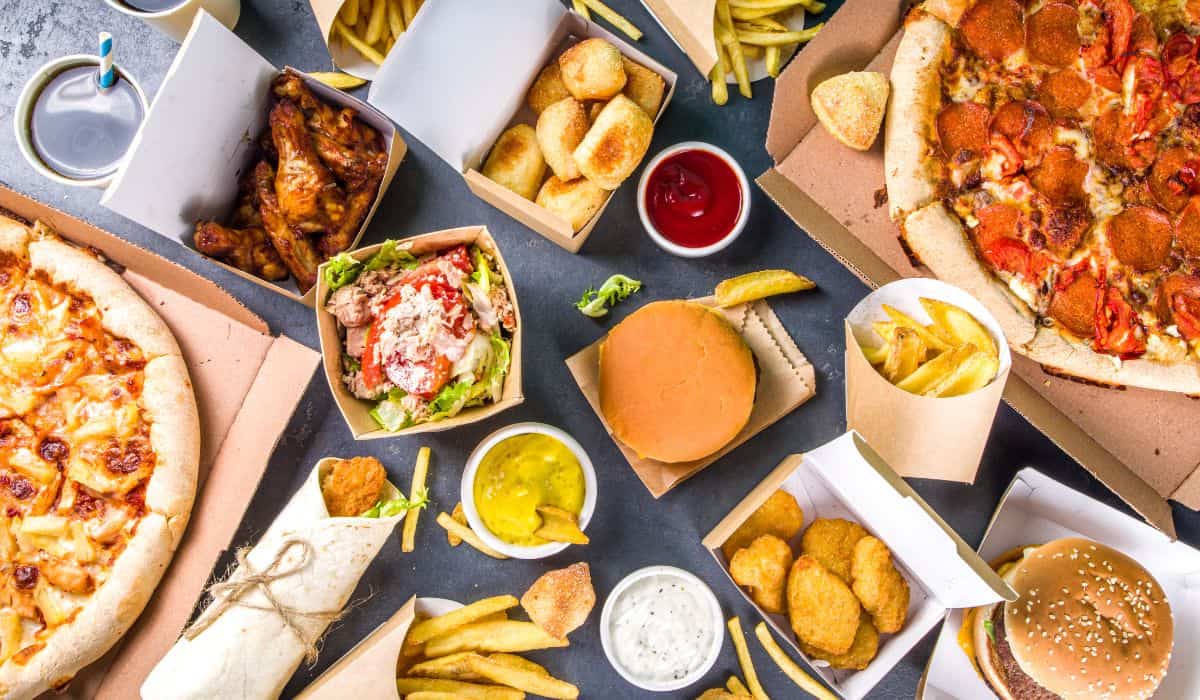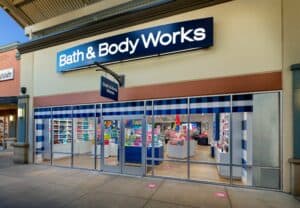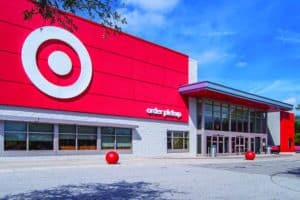
©rimmabondarenko via Canva.com
December 10, 2024
Paris Hilton and Nicole Richie Team Up With Sonic: Do Celebrity Fast-Food Collabs Actually Work?
The latest in a long string of celebrity fast-food collabs, Paris Hilton and Nicole Richie recently became the face of some colorful signature Sonic beverages, as People outlined.
As Hilton and Richie reunite for their three-part Peacock special, “Paris & Nicole: Encore,” they’re also engaging in a high-profile collaboration with fast-food chain Sonic.
The Paris and The Nicole are both part of the Sonic Iconic Drinks campaign, with The Paris featuring Sprite, dragonfruit flavor, and real lemon and lime, topped with whipped cream and Nerds. On the other hand, The Nicole contains Dr Pepper, sweet cream, vanilla flavor, and real strawberries, and it’s topped with whipped cream.
While these limited-time drinks may drive decent sales numbers by “capitalizing on the popularization of early ’00s nostalgia,” per Nation’s Restaurant News, the broader question remains: Do celebrity fast-food endorsements actually drive interest (and traffic)?
A History of Celebrity Fast-Food Collabs, in Brief
According to Marie Claire, a litany of celebs have popped up in fast-food ads over the years. Beyoncé, Britney Spears, Chrissy Teigen, Nelly, Matthew McConaughey, Kristen Wiig, Kate Upton, Pink, and others have all taken payment in exchange for their contribution to a fast-food marketing campaign at one point or another.
But as Forbes detailed, more recent fast-food campaigns have pushed even harder on celebrity endorsements, often with provably positive results.
Rapper Travis Scott’s involvement with McDonald’s in 2020 was an unequivocal success, driving app registrations up 46% compared to the month prior and doubling sales of the red-and-yellow brand’s Quarter Pounder during the week after the campaign launched, according to The Shorty Awards. McDonald’s has also paired up with South Korean boy band BTS in a campaign that saw sales of Chicken McNuggets jump 250% in Korea, with restaurant visits hiking upward 12% even in the United States.
In the end, Travis Scott’s meal led to McDonald’s not only partnering with BTS but also with Cardi B and Offset, Mariah Carey, J Balvin, and Saweetie, per Trapital. Tim Hortons partnered with Justin Bieber to create Timbiebs, and Megan Thee Stallion sold Hottie Sauce for Popeye’s, which got a lot of media attention and helped boost sales and the brand’s image so much that “Megan even agreed to open five franchise locations herself,” according to Forbes.
As a 2023 Medium report detailed, McDonald’s Chief Marketing and Customer Experience Officer Tariq Hassan described the Offset and Cardi B campaign as driving relevance in addition to sales numbers.
“These types of deals have kept McDonald’s at the center of culture,” Hassan said.
Why Celebrity Fast-Food Collabs Might Work
As Forbes indicated, creating buzz and hype — particularly in an era where consumers are hyper-aware of celebrity goings-on via social media — is key to success in a crowded fast-food marketplace.
“The press and online media often highlight these collaborations, increasing their visibility. Associating with celebrities also elevates the brand’s status and desirability among consumers, contributing to a positive consumer perception and enhanced brand image. Loyal fans will flock to whichever restaurant their favorite stars are partnered with, especially if it’s widely accessible, like McDonald’s,” Forbes wrote.
Authenticity matters, too. As Travis Scott was an admitted fan of McDonald’s, his endorsement made sense and felt organic. So, too, was Justin Bieber’s endorsement of Tim Hortons — Bieber even whipped out a guitar during a Zoom call with Tim Hortons’s chief marketing officer, per a New York Times report, and played a song he used to sing to his siblings about the Canadian coffee-and-donut chain.
These connections can create loyalty, particularly with younger generations of consumers who may not have grown up with the more traditional Pizza Hut sit-down experience or a McDonald’s PlayPlace.
“For some chains, the celebs are a powerful lure that can entice customers to download restaurant apps or join loyalty programs to get meals, discounts or even free food. During its celebrity-meal campaigns, which began in September 2020, McDonald’s has seen 10 million downloads of its app, a significant jump,” The New York Times reported.
Some Criticism of Fast-Food Collabs as Cynical, Shallow Marketing
Writing for The Varsity in 2021, Jwan Salih Mohamedali Omer added context to the trend of celebrity fast-food collabs as it was unfolding.
“The relationship we have with celebrities has been fundamentally altered by social media. They are no longer mysterious figures that we connect with through mediums like magazines or movies. Instead, their social media presence offers us a genuine, less produced glimpse into their personal lives,” Omer wrote at the time.
“This is where food franchises come in. These collaborations are not only ways of obtaining products connected to your favorite celebrity — they also play a crucial part in establishing a parasocial connection with that celebrity. When you order Saweetie’s favorite meal, it’s almost like she’s a friend who’s recommending you try her usual order,” Omer continued.
Pointing to an argument that fast-food chains are antithetical to health and to small business at large — and adversarial when it comes to relationships with low-paid employees — Omer noted that during the same month that the Golden Arches’ BTS campaign launched, the chain’s workers were striking for an increased minimum wage.
“So, despite any clever marketing, it’s clear that partnerships between celebrities and fast food corporations are nothing to celebrate. These collaborations are simply a reminder that we’re susceptible to heavy marketing and the promise of a new sauce to coat the same french fry,” Omer concluded.
Discussion Questions
Do celebrity fast-food collabs actually work? Why or why not?
What do fast-food brands have to be wariest of when selecting a celebrity endorsement? What factors are most important in terms of a risk versus reward calculation?
Can celebrity fast-food collaborations build loyalty among younger consumers, even with ongoing concerns about value and health in the industry?
Poll
BrainTrust
Lucille DeHart
Principal, MKT Marketing Services/Columbus Consulting
John Hennessy
Retail and Brand Technology Tailor
Mark Self
President and CEO, Vector Textiles
Recent Discussions








Menu innovation can work at fast food outlets: if done well it drives interest, traffic and sales. Attaching celebrity names to drinks should help amplify the additions to the menu. As a standalone collaboration this is interesting, but I don’t think it moves the dial all that much. However, as part of Sonic’s generally good track record of menu innovation it’s a good way of keeping things fresh and keeping customers engaged.
As someone who has worked directly and indirectly with celebrities, their brands, and endorsements, I have learned quite a bit about how, when, and to what extent, their names and faces sell products.
Although I would have to write a lengthy book to cover each detail, I will assure you that celebrities alone, even superstars, do not generate much trial for familiar customers.
Particularly with fast goods, this holds true. If a customer has tried Sonic and doesn’t like it, Paris Hilton won’t influence that non-customer to become one. For those who haven’t thought about Sonic for quite some time, Paris will draw attention, and remind them of Sonic.
Celebrities might have a marginal impact on the launch of a new product, such as a new drink. In the ads, whether TV, digital, or otherwise, the celebrity will bring attention to the message, but if the celebrity doesn’t communicate the details of the product, the ad will be ignored.
There is also a stark difference between the effectiveness of celebrities, and for which messages, and about which products. It might not matter how famous a celebrity is, since many celebrities are overexposed, e.g., Snoop Dogg, Pat Mahomes, Kelse, Melissa McCarthy, etc., viewers might tune out. I have learned that most effective are celebrities who create curiosity because he or she has been out of focus for ten years. Paris Hilton might be a good example.
But be forewarned, that celebrity endorsements are becoming ineffective, if not directly relevant. Singers, actors, and comedians contributed very little to American voters’ decisions this election.
Celebrity fast-food collaborations are effective if they bring newness and slight provocation that create buzz without risking a brand’s inherent value. We can recall the classic 1993 collaboration between Michael Jordan, Larry Bird, and McDonald’s in a wild, high-stakes game of HORSE. More recent collaborations mentioned above move from iconic appearances of athletes as heroes to the spicy ensemble of Meg Thee Stallion and Popeyes. These go beyond simple endorsements; they bring authenticity, creativity, and even a bit of provocation; all of which are supported with a well-orchestrated dose of social media engagement.
Fast-food is a very crowded market. The right endorsement could help one chain gain choice over others. As with any campaign, read the sales data. Verify that the endorsement has increased trips and sales. That’s what you’re paying for.
A key consideration is whether the celebrity chosen aligns with the chain’s brand message. As noted in the article, there are some celebrities who identify closely with the brand. Also consider if the person endorsing your brand will do something to get you the wrong publicity.
Stop trying to make fetch happen.
Nicole Richie? Paris Hilton? Sonic?! I mean, have they ever darkened the doors in any capacity at a Sonic?
Color me skeptical. The only revenue this celebrity/fast food trend generates is lining the pockets of the celebrity.
I cannot think of a less aligned partnership for Sonic than Hilton/Richie. Both come from highly affluent families and are fashionista’s who have most likely never consumed an empty calorie. I do, however, think celebrity partnerships can be effective when the demographics are paired well. Danny Devito and Jersey Mikes and Wendy’s and the Final Four campaign have built awareness and brand personality.Like any other marketing effort, the strongest ROI will come from a thoughtful, targeted program with clear objectives and measures that define a tactical execution that delivers results. Starting with the creative may win some awards, but won’t move the stock needle.
Familiar and often famous endorsements create a sense of trust and well-being for a brand. This happens almost immediately, since the endorser is already known, and the audience who is familiar with the famous endorsement extends their trust and comfort to the branded products that the endorser is pushing. The real question is why wouldn’t a famous endorsement not work? I believe in PT Barnum, who said that all advertising is good advertising…